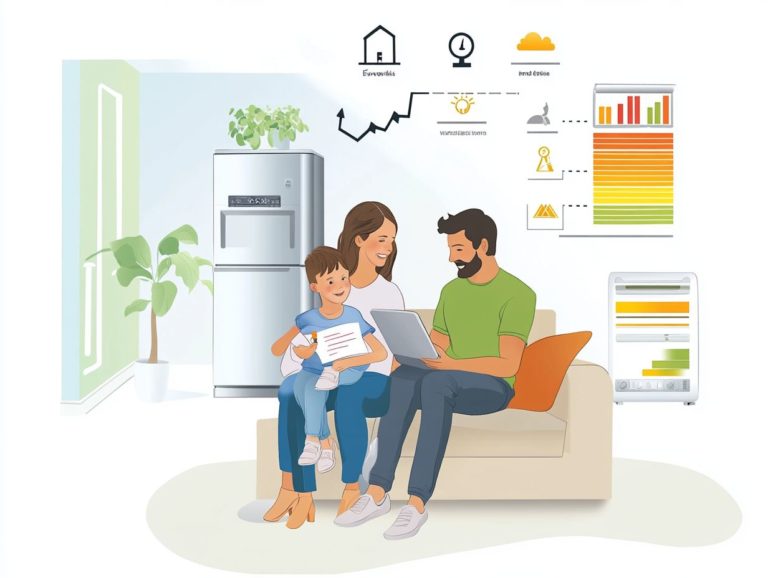Energy Audits for Rental Properties: What to Know
Understanding energy audits is crucial for you, whether you re a landlord or a tenant in this environmentally-conscious era. These assessments pinpoint ways to enhance energy efficiency in rental properties, delivering significant benefits such as lower utility bills and heightened appeal for the property.
This article delves into the importance of energy efficiency, the various types of audits available, and how to prepare for one effectively. You ll discover how to interpret the results and implement practical, cost-saving measures.
Whether you re a landlord aiming to elevate your property or a tenant in search of a more sustainable living environment, this guide offers valuable insights tailored just for you.
Contents
- Key Takeaways:
- Understanding Energy Audits for Rental Properties
- The Importance of Energy Efficiency in Rental Properties
- Types of Energy Audits
- Preparing for an Energy Audit
- Interpreting Energy Audit Results
- Implementing Energy Efficiency Measures
- Frequently Asked Questions
- What is an energy audit for rental properties?
- What benefits come from an energy audit for my rental property?
- How often should I get an energy audit for my rental property?
- Who can perform an energy audit for my rental property?
- What should I expect during an energy audit for my rental property?
- What are some common energy-saving recommendations from an energy audit for rental properties?
Key Takeaways:
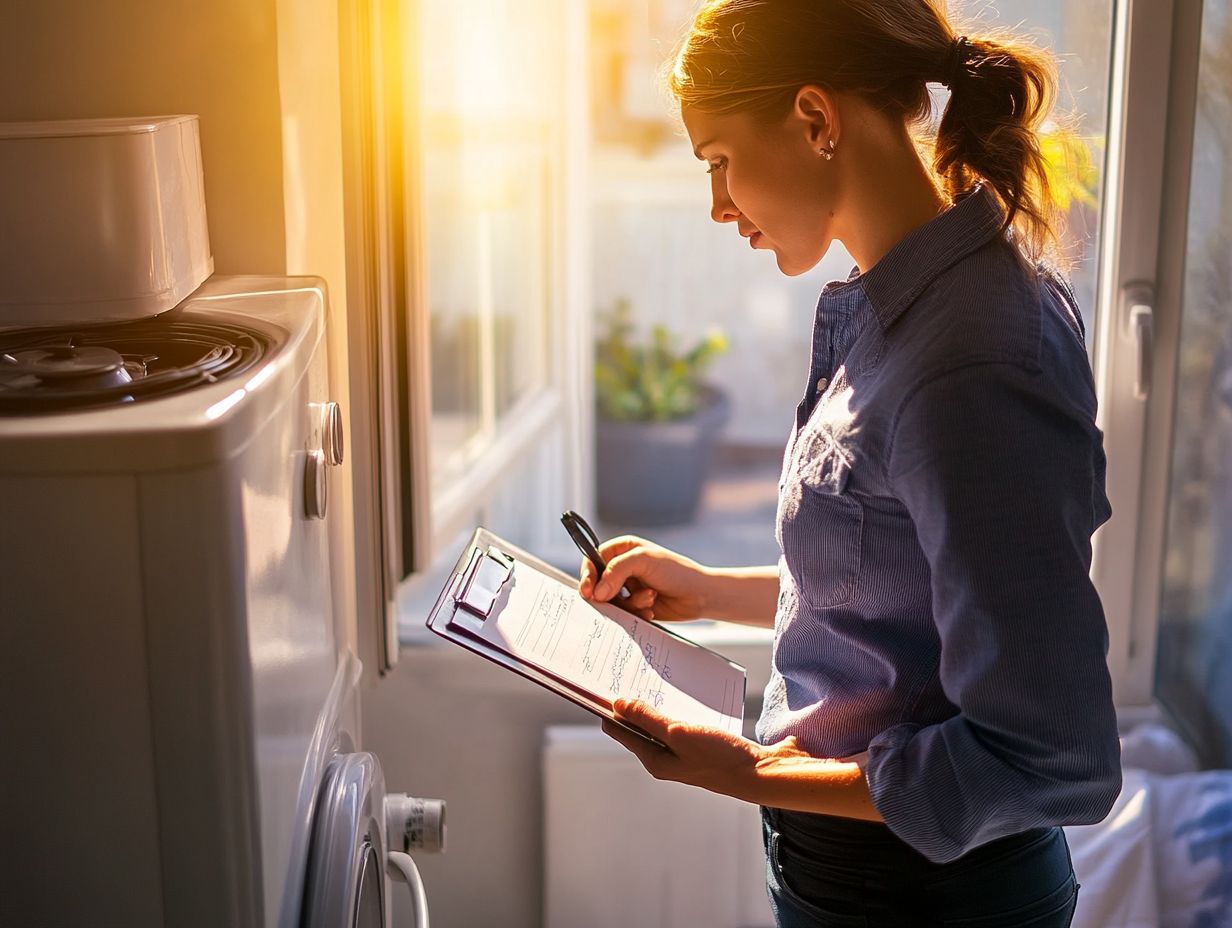
- Energy audits help landlords and tenants identify areas for improving energy efficiency in rental properties.
- Investing in energy efficiency brings benefits for both landlords and tenants, including cost savings and increased comfort.
- There are two types of energy audits: walk-through and comprehensive. Preparing for them can maximize their effectiveness.
Understanding Energy Audits for Rental Properties
Understanding energy audits for rental properties is essential for landlords who aspire to elevate energy efficiency, minimize utility expenses, and enhance tenant satisfaction. For more details, check out this resource on understanding energy audits.
An energy audit meticulously assesses how much energy your property consumes. It pinpoints areas ripe for improvement and potential savings.
This process reveals hidden energy inefficiencies and helps you embrace sustainable practices that benefit both your wallet and the planet!
What is an Energy Audit?
An energy audit serves as a thorough examination of your property’s energy consumption, aimed at identifying opportunities for enhancing energy efficiency. This process ultimately leads to significant cost savings and a more comfortable living environment.
Throughout this assessment, various methods are utilized to collect data on your energy usage patterns. For example, infrared cameras can uncover heat loss in your insulation, enabling you to make targeted improvements that enhance overall performance.
Energy monitors provide valuable insights by tracking your real-time energy consumption, helping you identify peak usage times. By integrating energy-efficient appliances and HVAC systems, these audits not only reveal inefficiencies but also suggest practical solutions that can reduce your utility bills while promoting a more sustainable lifestyle.
The Importance of Energy Efficiency in Rental Properties
The significance of energy efficiency in rental properties goes beyond simply meeting compliance standards. It brings substantial advantages for both landlords and tenants, such as lower utility costs and improved tenant satisfaction.
By implementing energy efficiency measures, you enhance the overall value of your property while promoting environmental sustainability and reducing your carbon footprint.
Benefits for Landlords and Tenants
Both landlords and tenants gain significantly from adopting energy-efficient solutions in rental properties. Benefits include noteworthy cost savings, enhanced tenant satisfaction, and eligibility for various utility rebates.
For landlords, upgrading to energy-efficient systems can lead to lower utility bills and decreased maintenance costs over time. This paves the way for a commendable return on investment. As properties become more attractive with modern amenities and reduced operational expenses, landlords may enjoy higher occupancy rates and increased demand.
Tenants benefit from lower energy costs, greatly enhancing their living experience. By involving tenants in energy-saving initiatives, a community-focused atmosphere is nurtured, fostering a sense of responsibility and improving tenant retention.
This synergy leads to long-term financial savings and elevates the overall rental experience, making properties stand out in the competitive housing market.
Types of Energy Audits
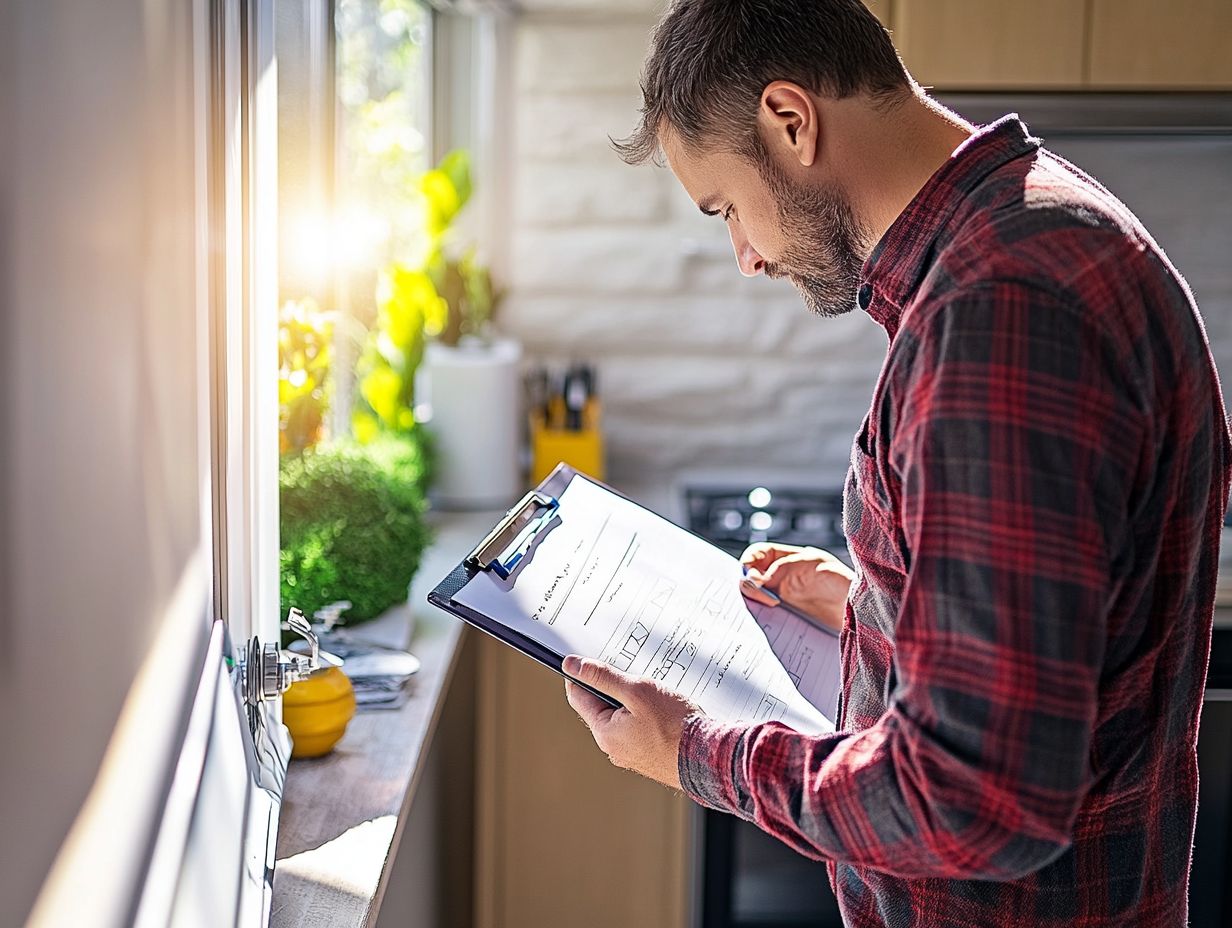
Energy audits are available in several forms, each tailored to address specific needs. The two main types you should consider are:
- Walk-through audits
- Comprehensive audits
Both play a vital role in effective energy management for rental properties.
Walk-through Audits vs. Comprehensive Audits
Walk-through audits are less detailed. They are ideal for identifying obvious issues.
Comprehensive audits offer a thorough analysis of energy consumption. They highlight potential upgrades.
The walk-through audit typically involves a visual inspection of your heating, ventilation, and air conditioning systems, lighting, insulation, and other critical areas. This method is useful for pinpointing glaring inefficiencies, like outdated equipment or inadequate insulation, which can often be addressed with minimal investment.
On the other hand, comprehensive audits dive deeper, utilizing advanced diagnostic tools and data analytics to assess HVAC performance and energy flows in intricate detail. By synthesizing extensive data, these audits uncover nuanced opportunities for reducing energy consumption and lowering operating costs over the long term, ultimately leading to a more sustainable system.
Preparing for an Energy Audit
Preparing for an energy audit requires you to grasp what lies ahead, ensuring your property is primed for assessment.
Gather essential documentation that illustrates your energy consumption habits and any previous maintenance efforts. This proactive approach will set the stage for a thorough evaluation and valuable insights.
What to Expect and How to Get Ready
Get ready for a deep dive into energy-efficient solutions and systems. This includes a close look at smart meters and HVAC systems to analyze utility costs and pinpoint areas that could use some improvement.
Inspectors will dig into how your appliances consume power, examining everything from insulation levels to lighting fixtures. They ll also evaluate the overall maintenance of the property and identify any outdated technology that might be siphoning off resources.
For both tenants and landlords, ensuring easy access to utility bills and historical usage data can greatly streamline this process. Engaging in discussions about past energy-saving measures and being receptive to recommendations can make the audit run much more smoothly.
By getting a grip on utility costs and exploring energy-efficient solutions together, you and the other party can work towards cutting expenses and enhancing the property’s sustainability.
Interpreting Energy Audit Results
Interpreting energy audit results is essential for grasping energy efficiency ratings and implementing the recommended energy-saving strategies.
By doing so, you can unlock long-term savings and enhance your property’s performance significantly.
Understanding Energy Efficiency Ratings and Recommendations
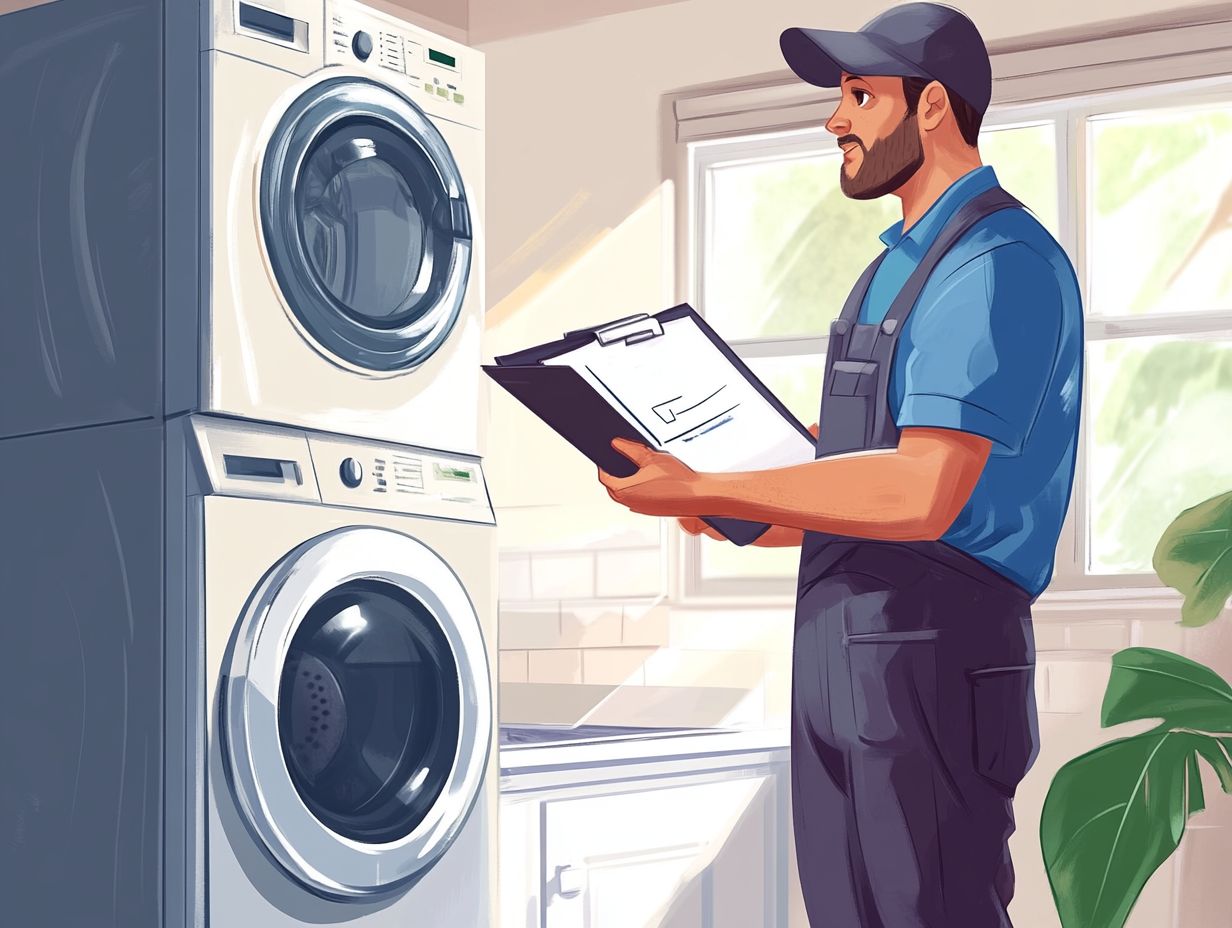
Energy efficiency ratings offer a clear insight into how well a property performs. Grasping these ratings along with the accompanying recommendations gives the power to both landlords and tenants to make well-informed decisions about energy-saving measures.
High energy efficiency ratings often signal an uptick in property value, which is invaluable for prospective buyers and investors. Properties that showcase outstanding energy performance typically attract tenants eager to enjoy lower utility bills and a smaller environmental footprint.
After an energy audit, the recommendations usually involve:
- Upgrading insulation
- Installing energy-efficient appliances
- Embracing smart home technologies
These upgrades will transform your living space and save you money in the long run! By adopting these strategies, property owners can boost their marketability while making a meaningful contribution to energy conservation efforts.
Implementing Energy Efficiency Measures
Implementing energy efficiency measures is crucial for both landlords and tenants. By embracing cost-effective solutions like energy-efficient appliances, enhanced insulation, and strategic energy upgrades, you can achieve significant savings while elevating comfort levels in your living spaces.
Cost-effective Solutions for Rental Properties
Cost-effective solutions for your rental properties include:
- Installing energy-efficient appliances
- Using programmable thermostats
- Implementing various energy-saving measures that enhance maintenance efficiency and tenant satisfaction
By prioritizing these upgrades, you can significantly reduce energy consumption, benefiting both your bottom line and your tenants. For instance, swapping out older refrigerators and washing machines for ENERGY STAR-rated models can lead to noticeable reductions in utility bills.
Programmable thermostats allow for better climate control, resulting in energy savings during off-peak hours. Consider improving insulation to keep units comfortable. This helps lower heating and cooling costs.
These measures not only maximize comfort for your tenants but also create a more sustainable living environment. This encourages longer leases and reduces vacancy rates.
Frequently Asked Questions
What is an energy audit for rental properties?
An energy audit is a check-up for your property s energy use. It involves assessing the building’s structure, heating and cooling systems, appliances, and other energy-consuming elements to identify areas for improvement and recommend energy-saving measures.
What benefits come from an energy audit for my rental property?
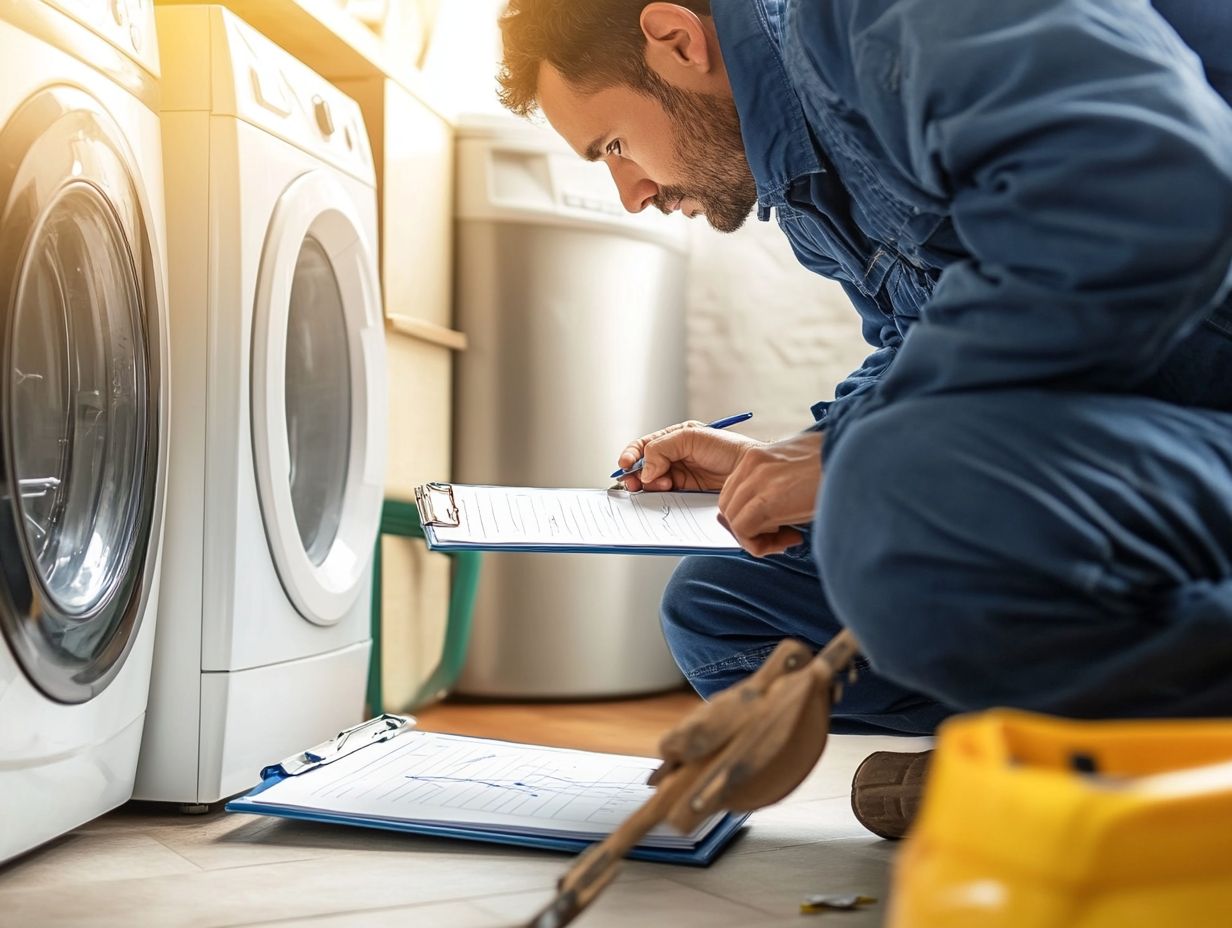
An energy audit can help you save money on utility bills, increase the value of your property, and attract more tenants. For a comprehensive overview, consider following energy audits: a step-by-step guide, which can also help identify potential safety hazards, making your property more comfortable for your tenants.
How often should I get an energy audit for my rental property?
It is recommended to get an energy audit every 3-5 years. However, if you notice a significant increase in your utility bills or make major renovations to the property, it is beneficial to get an audit done sooner.
Who can perform an energy audit for my rental property?
You have various options for getting an energy audit, such as hiring a professional energy auditor, using online audit tools, or contacting your utility company. It is important to research and choose a reputable and experienced energy auditor for accurate results.
What should I expect during an energy audit for my rental property?
During an energy audit, the auditor will inspect and collect data on your property’s energy usage, analyze utility bills, and conduct tests such as blower door tests and thermal imaging. To ensure you get the most out of the process, it’s helpful to understand how to make energy audits work for you. They will also provide a detailed report with recommendations for improving your property’s energy efficiency.
What are some common energy-saving recommendations from an energy audit for rental properties?
Common recommendations from an energy audit include:
- Sealing air leaks
- Upgrading to energy-efficient appliances
- Adding insulation
- Installing programmable thermostats
These measures can help reduce energy usage and save money in the long run.
If you’re ready to reap the benefits of energy efficiency, consider scheduling an energy audit today!




